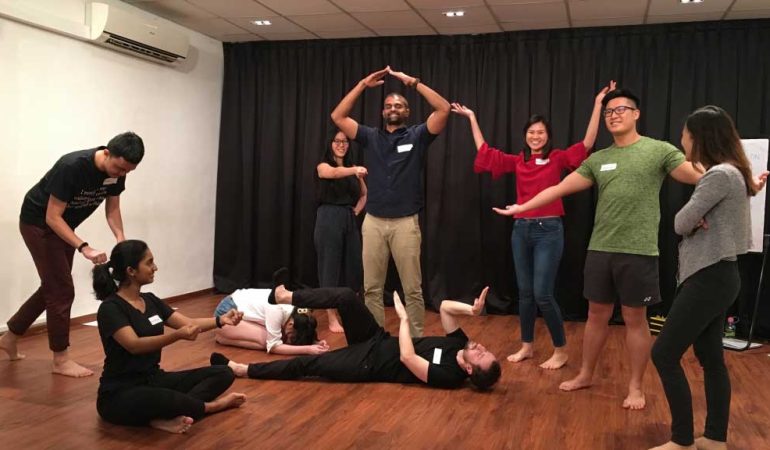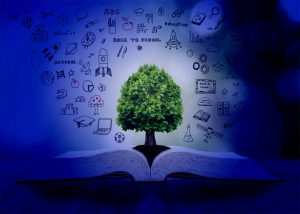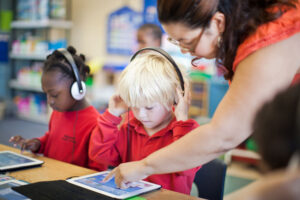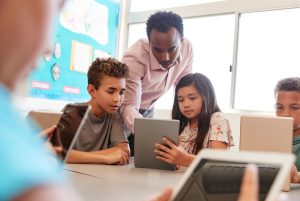
To Develop Students’ Creativity and Social Skills: DRAMA WORKSHOPS
Course Description
Education is a field in which skills, attitudes and values in social life are acquired.
Today, it is expected from the teacher to direct the education process, to create a step for education and to place the student at the center of education. Teachers are not seen as the absolute authority in the learning environment, they ensure that the student acquires relevant information efficiently.
The teacher is also considered as a supportive guide for individuals who discover, learn and make sense.
Teachers are expected to see the differences between their students, create enriched learning environments for them, and support the educational process with relevant materials. A learning environment where students can express themselves freely and show their presence in the learning process is important. For this reason, it will be insufficient to use only traditional methods such as the narration method or the method of asking questions and getting answers.
The drama method forms the basis of the “live and learn” method. Drama is the imitation of a purpose or idea about the lives of a group and animals using improvisation or animation techniques. Drama is to enliven an experience, an event, an idea. Sometimes in the process of individually “playing” the meaning of a concept or behavior, group work is done using improvisation, role playing, theater or drama techniques. According to another understanding, drama is an approach that will enable individuals to become individuals as an educational method, a creative field of education and a discipline.
This course will enable students to use drama as a learning tool to improve their creativity and social skills.
Course objectives;
- Ensuring creativity and aesthetic development,
- Gaining critical thinking skills,
- Gaining the habit of social development and cooperation,
- Gaining self-confidence and decision-making skills,
- Gaining language and communication skills through vocabulary enrichment,
- To develop imagination, feelings and thoughts,
- To develop the ability to understand and feel (empathize) others,
- Gaining experience about different events, facts and situations,
- To enable the development of moral and spiritual values,
- To be able to analyze problems and gain problem solving skills,
- Giving information about the behaviors that the individual has gained, changed or corrected,
- To show the individual how to deal with undesirable situations, events or phenomena,
- To enable the individual to see the world more concretely,
- Tolerance of differences between individuals…
Course achievements
With this course, our participants will learn:
- To prepare the students for the drama technique (Preparation, Warm-up and Relaxation, Playing, Improvisation, Formation, Evaluation) and the application steps of drama.
- Using drama techniques (Improvisation, Role Playing, Flashback, Re-enactment, Drama with the Whole Group, Meeting Arrangement, Photo Frame etc.) as a tool for learning, communication and collaboration.
- To encourage creativity and aesthetic development in students.
- To ensure that students are more interested in the lesson.
- To be able to develop pedagogical activities based on drama.
- To acquire concepts and experiences that embody the abstract through drama.
- To provide another “non-traditional” opportunity for learning and learning outcomes.
- Using body language effectively and in different ways
COURSE SCHEDULE
1st day
- Meet, warm up and trust activities for effective and positive interaction throughout the course.
- Presentations of the participants’ schools
- Introduction to drama and history of drama
- Drama as an educational tool
2 days
- Implementation steps of drama Preparation, Warm-up and Relaxation, Playing, Improvisation, Formation, Evaluation
- What are the drama strategies and techniques
- Use and importance of drama techniques in education
- Practicing training with one of the drama techniques chosen by the group.
3 days
- Ways to use drama in the curriculum
- Choosing the appropriate drama technique for different lessons
- Improvisation exercises
- Practicing training with one of the drama techniques chosen by the group.
4 days
- Drama education in students’ creativity and aesthetic development
- The effect of drama on using body language effectively and in different ways.
- Music and rhythm studies
- Practicing training with one of the drama techniques chosen by the group.
5 days
- Course evaluation: discussion and evaluation of acquired competencies, feedback and course content
- Sharing course documents and records
- Issuance of Course Participation Certificate
To follow
Trainees will be provided with hard copies and hard copies of all course materials that they can present to their colleagues in their organization to spark interest in the strategies learned during the training course. In addition, a mailing list of participants will be created to exchange ideas/experiences. Self-assessment materials will be provided. At the end of the course, participants will fill out a questionnaire to get detailed feedback on the effectiveness of the training event.
Course Info
- Duration: 5 Days
- Location: Antalya
- Cost: €80-Day
- Certificate: Yes
- Prerequisites: No











